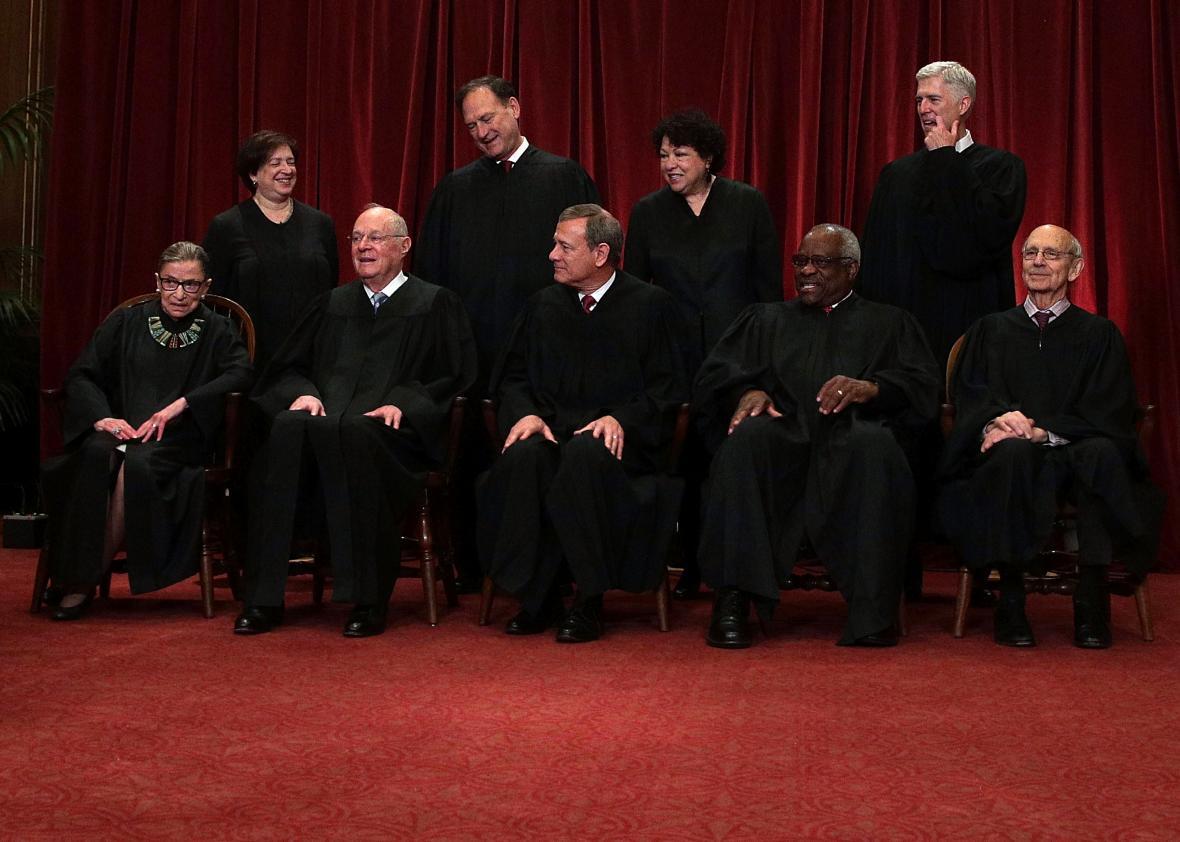Dear Dahlia, Pam, Mark, and the Judge—
This is, amazingly, the 16th year that Dahlia and I have been having this Breakfast Table discussion at the end of the Supreme Court term. It is a great pleasure to be joined by Slate’s always-insightful Mark Joseph Stern, by the brilliant and witty Pam Karlan of Stanford, and the brilliant and acerbic Judge Richard Posner of the 7th U.S. Circuit Court of Appeals.
This year is an unusual one. I can’t remember a final week of the term that appeared so lacking in a major case—something on the order of the rulings on the Affordable Care Act, the Voting Rights Act, or marriage equality of terms past. Appearances can be deceiving, however. You can’t really know how significant a decision might be until you see the opinion. Take the case about whether a religious school is entitled to receive rubberized mats for the playground. It could be decided on narrow grounds. Or it could turn church-state law upside down. We will see. Other cases awaiting decision may reveal the lens through which the justices view the rights of undocumented immigrants.
The most important news of the end of this term may concern two cases the court will not decide until next term. One is the travel ban—President Trump’s first challenge in the Supreme Court. The court will decide at its Thursday conference whether it will grant review of the decisions of the 4th Circuit and the 9th Circuit striking down the ban. It has been widely assumed that the Supreme Court will hear the travel ban cases. I’m not so sure. Georgetown’s Marty Lederman has made such a strong argument that the cases will essentially be moot by the time the court reconvenes next October that the president was forced to amend his executive order in an attempt to keep the cases alive. But we will know by Monday whether the court will hear the cases—and whether it will allow the ban to go into effect pending its resolution of the issue.
The other case set for next term has to do with political gerrymandering. Is it an offense against democracy to have districting maps so distorted that one party is effectively entrenched? That case raises the possibility of restoring a bit of democracy. But when we think of democracy, we must ask whether our undemocratic Supreme Court is part of the solution or part of the problem. Have we come so far from democracy that we no longer deserve to be called by such a name?
Thirty years from now we could be governed by a Supreme Court majority put in place by presidents who were rejected by a majority of voters. One of them would have lost the electoral vote as well if the Florida recount had not been halted, and the other’s victory could conceivably turn out to have been tainted by illegitimate forces, foreign or domestic. George W. Bush, who lost the popular vote by half a million, named two justices. Trump, who lost the popular vote by 3 million, has named one justice and may end up naming three. (Some think Justice Thomas, for starters, will step down in time for Trump to name his successor.) If Trump’s new justices are as nondeferential to the elected branches as some of those who are already on the court, we could see decades of decisions striking down progressive legislation by five justices nominated by “minority” presidents.
The framers of the Constitution, of course, deliberately constructed a government that would check raw majoritarianism. As one delegate to the 1787 Constitutional Convention put it, “The evils we experience flow from the excess of democracy.” That was Elbridge Gerry of Massachusetts. Yes, right, that Gerry, as in gerrymander, a term named after his own oddly shaped state-districting plan.
In our system, judicial review by an independent judiciary is indispensable. Has it been, on balance, a good thing?
As China’s Premier Zhou Enlai said (perhaps apocryphally) in the 1970s when asked his assessment of the French Revolution, “It’s too early to say.”
We will learn a little bit more this week.
